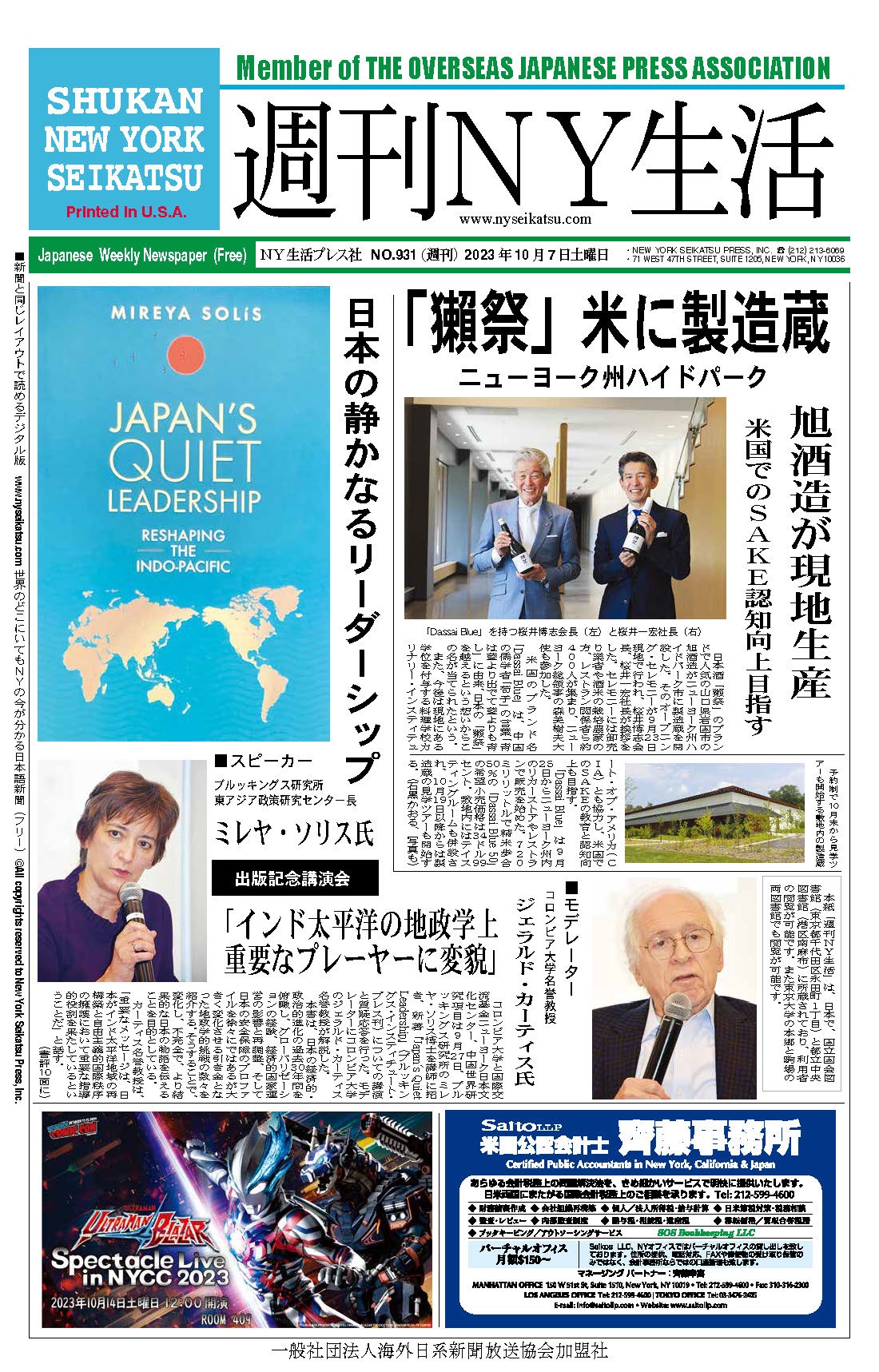Japan's Quiet Leadership Featured in NY Seikatsu

On September 27, Columbia University and the Japan Foundation in New York invited Dr. Mireya Soles of the Brookings Institution to speak and answer questions about her new book, Japan's Quiet Leadership.
The moderator of the session was Professor Emeritus Gerald Curtis of Columbia University, who provided commentary. The book takes a bird's-eye view of the past 30 years of Japan's economic and political evolution, the experiences of globalization, the impact and readjustment of economic statecraft, and the geopolitical challenges that have triggered a gradual but significant shift in the country's security profile. In doing so, it aims to tell a changing, incomplete, and more consequential story of Japan. The key message is that Japan is playing an important leadership role in rebuilding the Indo-Pacific region and defending the liberal international order," said Professor Emeritus Curtis.
The book, released on September 1, delves into Japan's transformation into a key player in Indo-Pacific geopolitics, highlighting its strengths such as democratic resilience, social stability, and proactive diplomacy, while also addressing pressing issues such as overpopulation, growing inequality, and threats to regional peace The report also addresses pressing issues such as depopulation, growing inequality, and threats to regional peace.
Why has Japan emerged from its "lost decades" unscathed from the waves of populism and become a far more important actor in Indo-Pacific geopolitics? To answer this question, Japan's Quiet Leadership offers a comprehensive look at a number of geopolitical challenges that have triggered a gradual but significant shift in Japan's domestic economic and political evolution, its economic national strategy, and its security profile. Delving deeply into Japan's trajectory over the past three decades, the book highlights the country's hidden strengths, such as democratic resilience, social stability, and proactive diplomacy, while also examining the serious challenges it faces, including depopulation, widening inequality, voter turnout, and threats to the long peace in Asia. The book traces the currents of profound change through Japan's politics and external environment, revealing the myriad ways in which Japan's experience has made it more relevant for countries coping with slow growth, deteriorating demographics, adaptation to economic globalization, and the emergence of a powerful and assertive China. This is the story of Japan's reinvention as a networking superpower to overcome the harsh realities of its declining relative capabilities. In rebuilding the Indo-Pacific, Tokyo has developed a robust economic strategy of trade integration and infrastructure financing, cultivated new partnerships with regional and extra-regional actors, and deployed an aggressive security diplomacy that has deepened its alliance with the United States. Nevertheless, geopolitical frictions, Japan's pandemic insularity, and the securitization of international economic relations have put Japan's national strategy of "connectivity" to the test. Introducing green, digital, and human capital transformation, avoiding a resurgence of indecisive politics at the helm of the nation, and fostering democratic dynamism, this book illuminates where Japanese politics, economy, and people are headed through the Abe era, into the 2020s, and beyond. (Miura)
This text is a translation of an article published in NY Seikatsu newspaper on October 7, 2023. The full article in Japanese can be accessed here.
